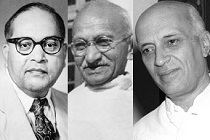Liberalism is not post-modern opportunism
Over the past 30 years, Indian liberals have shed their values of tolerance, reason and dialogue. The rise of fundamentalism, strident socio-political discourse, and post-modernist individualism also indicate the decline of the liberal ethos. This is a threat to India’s vibrant philosophical liberal tradition










